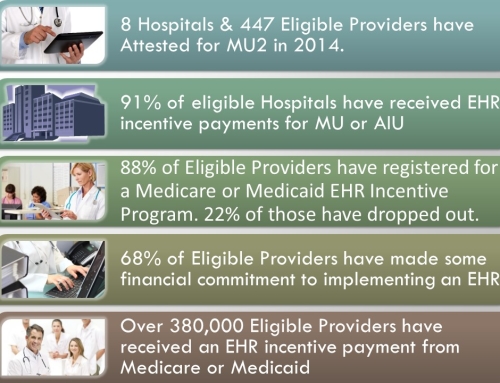It’s official! ICD-10 will not be implemented as the national standard until 10/1/2015. The bill H.R. 4302, also known as the PAM Act, the Protecting Access to Medicare Act, was signed into law by President Obama on April 1, 2014. It includes a very short section concerning ICD-10 that states the following:
212.
Delay in transition from ICD–9 to ICD–10 code sets
The Secretary of Health and Human Services may not, prior to October 1, 2015, adopt ICD–10 code sets as the standard for code sets under section 1173(c) of the Social Security Act (42 U.S.C. 1320d–2(c)) and section 162.1002 of title 45, Code of Federal Regulations
So what do you do if you have already started the transition or have prepared for ICD-10? National adoption of the updated ICD-10-CM/PCS is coming, regardless of the delay. The code set has already been implemented in most of the world and will bring improved patient care and reduce healthcare costs. Don’t lose the work that you have already achieved! Complete any training, report remediation, or other projects that you have in process and clearly document where you are currently at in your implementation process.
Continue to use the current ICD-9 code set while you prepare for the new code sets. This delay will allow for ample time to do employee training, assess facility readiness, and complete acceptance testing and certification with the new codes. It will also give smaller practices who had not yet begun to prepare for the switch to ICD-10 time to begin their preparations and adjust to the new standards of documentation that will be required.
The new ICD-10 code set has many new requirements for documentation of injury or ailment cause and type, location, complication, and manifestation than the current ICD-9 system. It contains more than five times the number of codes as ICD-9 and uses a different structure, requiring extensive changes for many medical groups.
- Continue to use the current ICD-9 code set
- Continue to prepare for ICD-10 acceptance testing and certification
- Document where you are in preparation and what you have completed
- Continue employee training
- Take the opportunity to fully test systems, billing, and processes
Is there an ICD-11 coming? Yes, it is currently in widespread Beta testing, which began in 2012. It will be presented to the World Health Assembly in 2017. Jeff Smith, director of public policy at the College of Healthcare Information Management Executives in Ann Arbor, Michigan stated that ICD-11 won’t be available in the U.S. until at least 2020. It is not likely that ICD-10 will be delayed that long or that the US will switch directly from ICD-9 to ICD-11.




